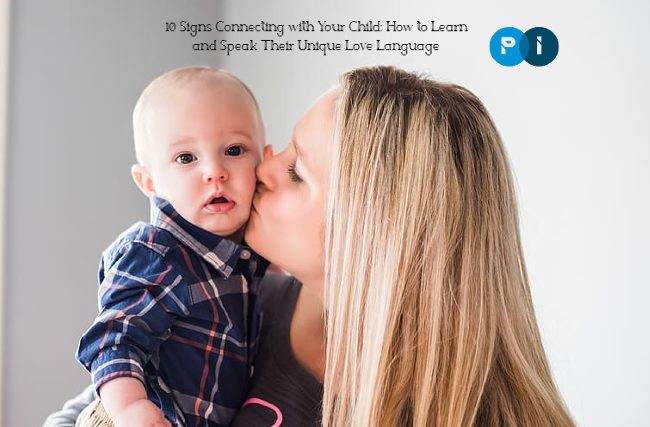
As parents, we want nothing but the best for our children. We strive to provide them with everything they need, from food, shelter, education, and material possessions. However, sometimes we overlook the importance of love and affection, which are essential for a child’s emotional and psychological development.
Every child has a unique love language, and it is our responsibility as parents to learn and understand their love language to nurture a healthy and loving relationship. In this article, we will discuss the ten signs that your child needs more love than you give and provide you with some tips on how to learn the love language of your child.
Contents
Tips: How to learn the love language of your child?:
#1 Your child craves physical touch.
Children need physical touch as much as they need food and water. They need to be hugged, cuddled, and held. If your child is constantly seeking physical affection and attention, it could be a sign that they need more love than you give. You can make a conscious effort to provide more physical touch by hugging, kissing, and cuddling your child often.
Previous Article
#2 Your child is clingy:
If your child is clingy and constantly wants to be around you, it could be a sign that they need more love than you give. They may feel insecure and crave your attention and affection. Spend more time with your child and engage in activities that they enjoy to make them feel loved and valued.
#3 Your child is always seeking approval
Children need validation and approval from their parents to feel loved and valued. If your child is constantly seeking approval and attention, it could be a sign that they need more love than you give. Praise and acknowledge your child’s achievements and efforts to boost their self-esteem and make them feel loved and appreciated
#4 Your child feels neglected
If your child feels neglected and ignored, it could be a sign that they need more love than you give. Take the time to listen to your child, show interest in their activities, and engage in meaningful conversations to make them feel valued and loved.
#5 Your child acts out
Children who feel unloved and neglected may act out to get attention. If your child is displaying negative behavior such as tantrums, defiance, or aggression, it could be a sign that they need more love than you give. Try to understand the underlying cause of their behavior and provide more love and attention to address the issue.
#6 Your child is unhappy
If your child is unhappy and displays a negative mood or attitude, it could be a sign that they need more love than you give. Spend quality time with your child, engage in fun activities, and show interest in their hobbies and interests to boost their mood and make them feel loved and appreciated
#7 Your child has low self-esteem
Children who do not receive enough love and affection from their parents may have low self-esteem and confidence. If your child lacks confidence and self-worth, it could be a sign that they need more love than you give. Encourage and praise your child for their efforts and achievements to boost their confidence and make them feel loved and valued
#8 Your child has difficulty forming relationships
Children who do not receive enough love and affection from their parents may have difficulty forming relationships with others. If your child struggles to make friends or has difficulty maintaining relationships, it could be a sign that they need more love than you give. Spend more time with your child and provide them with the love and attention they need to develop healthy relationships with others.
#9 Your child is anxious or stressed
Children who do not receive enough love and affection from their parents may feel anxious or stressed. If your child is displaying signs of anxiety or stress, such as restlessness, irritability, or trouble sleeping, it could be a sign that they need more love than you give. Spend more time with your child, engage in calming activities such as reading, drawing, or listening to music, and create a safe and secure environment for your child to reduce their anxiety and stress levels.
#10 Your child feels disconnected
If your child feels disconnected and distant from you, it could be a sign that they need more love than you give. Take the time to connect with your child on an emotional level, listen to their thoughts and feelings, and engage in meaningful conversations to strengthen your bond and make them feel loved and valued.
Learning the Love Language of Children:
Now that you know the signs that your child needs more love than you give, it’s essential to understand how to learn and speak the love language of your child.
#1 Observe your child:
Every child has a unique love language, and the best way to learn it is by observing your child’s behavior and preferences. Pay attention to the activities they enjoy, the way they communicate, and how they express affection to others.
#2 Ask your child:
Another way to learn your child’s love language is by asking them directly. Ask your child how they feel loved and what makes them feel special. This will help you understand their needs and preferences better.
#3 Experiment:
Once you have an idea of your child’s love language, experiment with different ways of expressing love and affection. For example, if your child’s love language is physical touch, try hugging, cuddling, and holding them more often.
#4 Be consistent:
Consistency is key when learning and speaking your child’s love language. Make sure to provide love and affection consistently and regularly to strengthen your bond and make your child feel loved and valued.
FAQs:
Q: What is the love language of children?
A: The love language of children refers to the different ways in which children express and receive love and affection. Every child has a unique love language, and it’s essential for parents to learn and speak their child’s love language to nurture a healthy and loving relationship.
Q: What are the five love languages?
A: The five love languages are words of affirmation, quality time, receiving gifts, acts of service, and physical touch. These love languages can apply to both children and adults.
Q: How can parents learn their child’s love language?
A: Parents can learn their child’s love language by observing their behavior and preferences, asking them directly, experimenting with different ways of expressing love and affection, and being consistent in providing love and affection.
Q: What are the benefits of speaking your child’s love language?
A: Speaking your child’s love language can strengthen your bond and relationship, boost their self-esteem and confidence, reduce their anxiety and stress levels, and create a safe and secure environment for them to grow and develop.
In conclusion, learning and speaking the love language of your child is crucial for their emotional and psychological development. By understanding the signs that your child needs more love than you give and learning their love language, you can provide them with the love and affection they need to thrive and succeed in life. Remember to observe, ask, experiment, and be consistent in providing love and affection to your child, and you will create a strong and loving bond that will last a lifetime.



